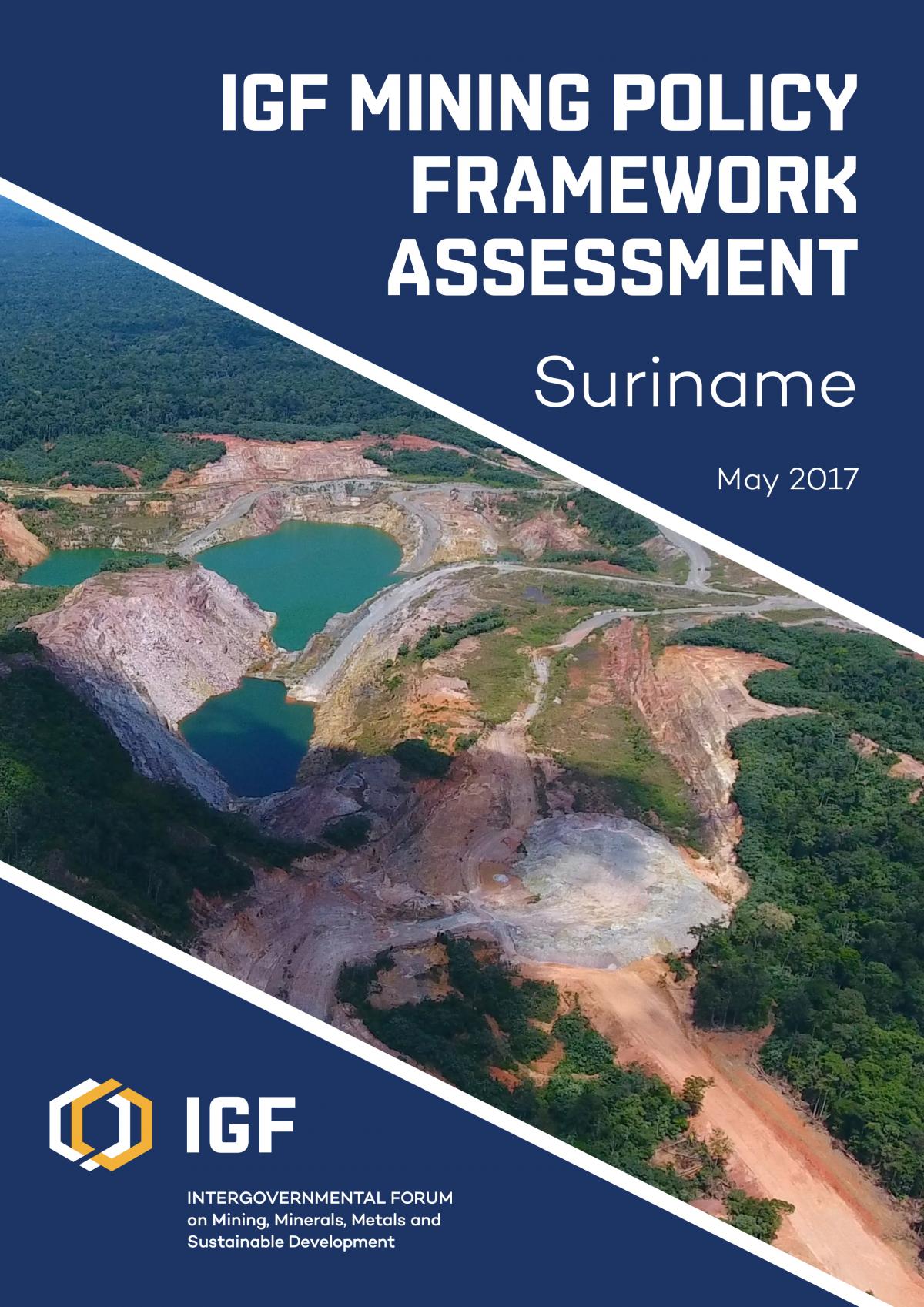In this article, we will be discussing the role of mining in Suriname’s economy. You will learn how mining contributes to the economy and what its impact is on other sectors such as tourism. Additionally, we will explore the challenges and benefits that come with mining in Suriname. So, let’s explore how this industry plays a vital role in shaping Suriname’s economy.
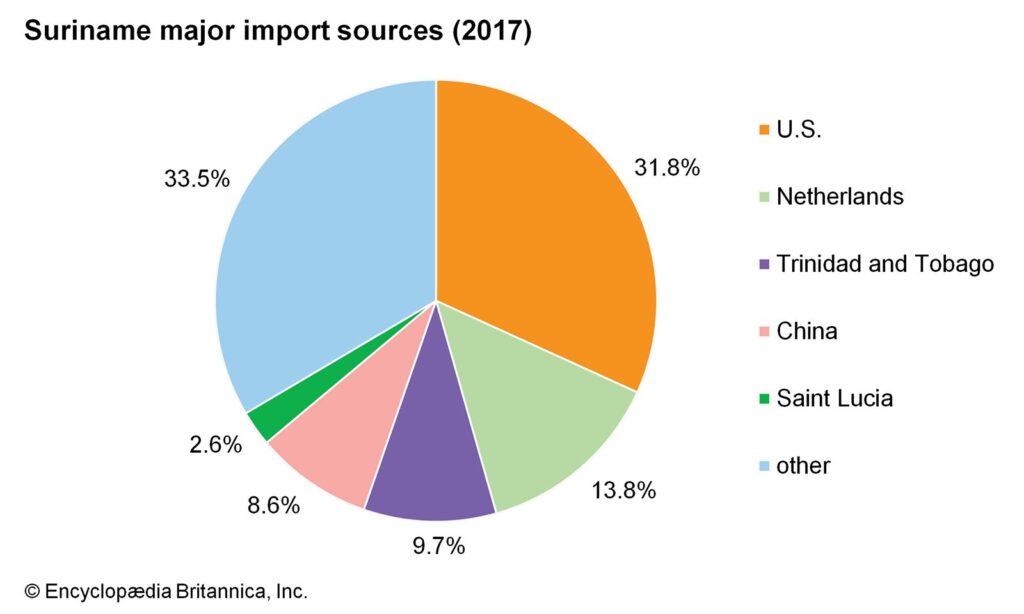
Overview of Suriname
Suriname, located on the northeastern coast of South America, is a small country with a rich resource base. Its geographical location makes it unique, with lush rainforests, rivers, and diverse wildlife. Suriname is bordered by Guyana to the west, Brazil to the south, and French Guiana to the east. The country’s population is approximately 600,000, making it one of the least densely populated countries in the region.
Suriname is known for its ethnic and cultural diversity, with a mix of indigenous people, Maroons, Creoles, and people of Indian, Chinese, and Indonesian descent. The official language is Dutch, reflecting Suriname’s colonial history.
The country has a varied historical background, influenced by Dutch colonization, African slavery, and indentured laborers from India and Indonesia. Suriname gained independence from the Netherlands in 1975 and has since developed its own unique identity.
Importance of Mining in Suriname
Mining plays a crucial role in Suriname’s economy, contributing significantly to its GDP and generating employment. The country’s rich mineral deposits have attracted attention from national and international mining companies, leading to increased foreign exchange earnings.
Types of Minerals Mined in Suriname
Suriname is blessed with a diverse range of minerals, including bauxite, gold, diamonds, and other minerals. Let’s take a closer look at each of these minerals and their significance in Suriname’s mining industry.
Bauxite
Suriname is home to substantial bauxite reserves, making it one of the world’s leading bauxite producers. Bauxite, an essential raw material for aluminum production, is mainly found in the western part of the country. The mining and processing of bauxite contribute significantly to Suriname’s GDP and provide employment opportunities.
Gold
Gold mining has a long history in Suriname, dating back to the early 1700s. Suriname’s extensive gold reserves have attracted both large-scale mining companies and small-scale artisanal miners. Gold mining plays a vital role in the country’s economy, contributing to its GDP and providing income for many Surinamese people.
Diamonds
Suriname is also known for its diamond reserves, although they have not been extensively exploited. Diamond mining, mainly conducted in the southern part of the country, holds economic potential for Suriname, contributing to its mineral wealth and creating employment opportunities.
Other minerals
In addition to bauxite, gold, and diamonds, Suriname also has other valuable minerals. These include iron ore, copper, uranium, and potentially oil and gas. Exploration and exploitation of these minerals have the potential to further enhance Suriname’s mining industry.
Bauxite Mining Industry
Bauxite mining is a major industry in Suriname, with substantial deposits located in the country’s western region. Suriname’s bauxite reserves are estimated to be one of the largest in the world. The extraction and processing of bauxite involve sophisticated techniques and heavy machinery.
The impact of bauxite mining on the environment and local communities is a concern. Deforestation, loss of biodiversity, and displacement of indigenous communities are some of the challenges associated with bauxite mining in Suriname. However, efforts are being made to mitigate these impacts through sustainable mining practices and community engagement.
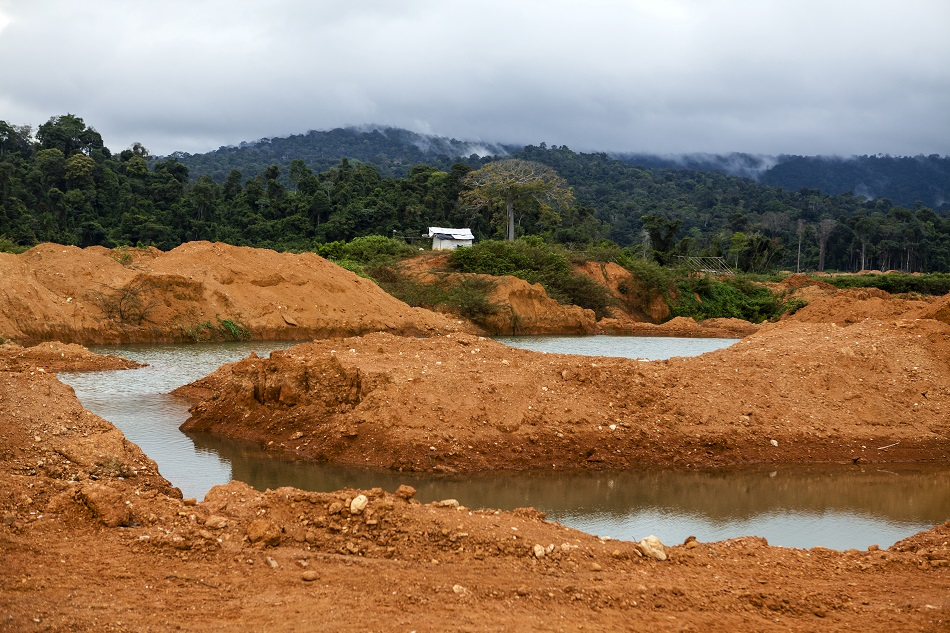
Gold Mining Industry
Gold mining in Suriname holds significant economic importance. The country is known for its extensive gold reserves, attracting both large-scale mining companies and small-scale artisanal miners. Various mining techniques are employed to extract gold, including traditional methods such as panning and more advanced methods like hydraulic mining.
The social and environmental impacts of gold mining in Suriname cannot be ignored. Deforestation, mercury pollution, and land degradation are some of the challenges associated with this industry. Additionally, gold mining often operates in the informal economy, which poses its own set of challenges in terms of regulation and taxation.
Diamond Mining Industry
Suriname’s diamond reserves, although not extensively exploited, hold economic significance. Diamond mining in Suriname is mainly conducted in the southern part of the country, and the extraction methods employed vary, from traditional alluvial mining to more advanced techniques.
While diamond mining can contribute to Suriname’s mineral wealth, the industry also faces challenges. Limited infrastructure and regulations for the diamond industry, coupled with potential conflicts over land rights, need to be addressed to ensure sustainable development and benefit for all stakeholders.
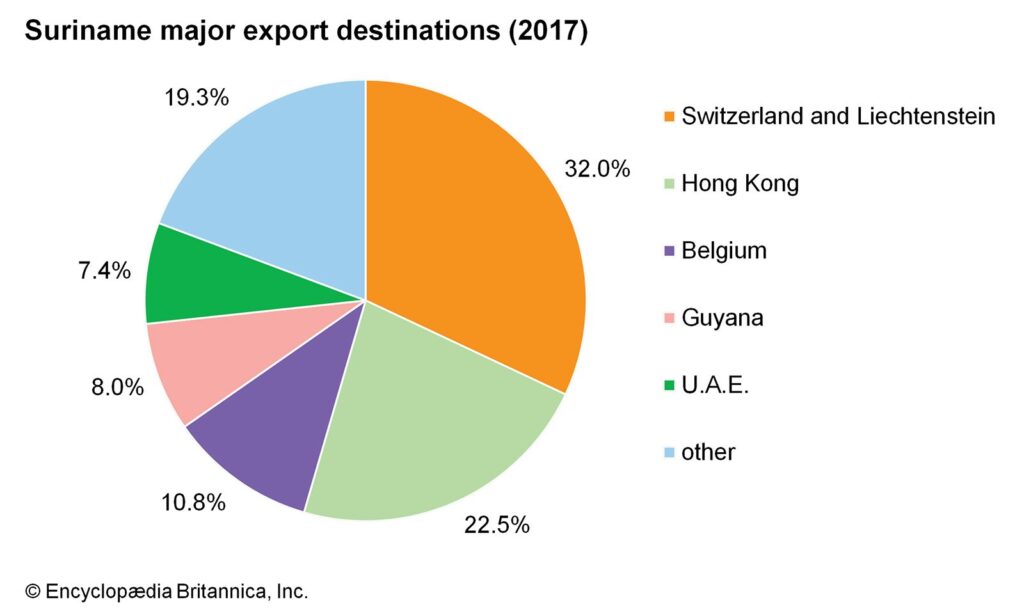
Other Minerals Mined in Suriname
In addition to bauxite, gold, and diamonds, Suriname also has other valuable minerals, albeit on a smaller scale. The Bauxite-Alumina Complex in Paranam is an industrial complex that produces alumina, a key ingredient in the production of aluminum. Rudimentary mining of small-scale minerals, such as sand, gravel, and clay, also occurs in Suriname.
Mining Regulations and Policies in Suriname
The Surinamese government plays a crucial role in overseeing the mining sector. It enacts regulations and policies to ensure responsible mining practices, protect the environment, and promote the participation of local communities.
Environmental regulations aim to minimize the negative impacts of mining activities, including guidelines for reclamation and land rehabilitation. The involvement of local communities in decision-making processes and benefiting from mining activities is also emphasized.
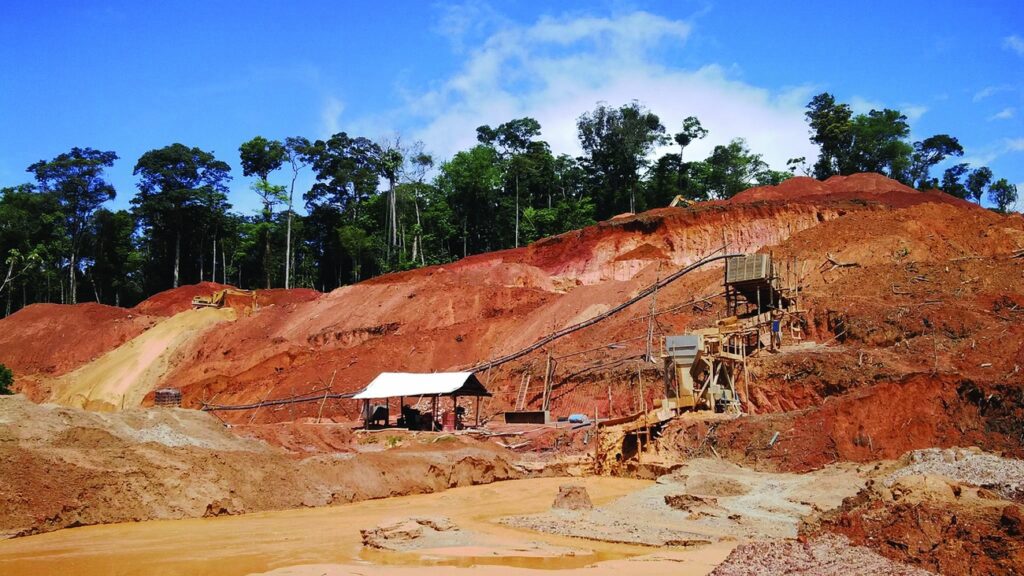
Challenges Faced by the Mining Sector in Suriname
Despite the economic benefits of mining, the industry in Suriname faces several challenges that need to be addressed to ensure sustainable development. Deforestation is a major concern, as the expansion of mining activities can lead to the loss of critical forest habitats.
Another significant challenge is mercury pollution, particularly in the gold mining sector. Mercury is used to extract gold and can have detrimental effects on human health and the environment. Effective regulation and enforcement are crucial to minimize mercury pollution.
Illegal mining activities pose yet another challenge. Unregulated and informal mining can lead to environmental degradation, labor exploitation, and loss of revenue for the government. Strengthening regulations and law enforcement is essential to combat illegal mining in Suriname.
Sustainable Mining Practices
Suriname recognizes the importance of responsible mining practices for long-term sustainability. Efforts are being made to promote sustainable mining practices that take into account environmental, social, and economic considerations.
Promoting responsible mining involves implementing environmental management plans, minimizing environmental impacts, and restoring mined areas. Reclamation and land rehabilitation are crucial aspects of sustainable mining, ensuring that land is restored to a productive state after mining operations cease.
Corporate social responsibility also plays a vital role in sustainable mining practices. Mining companies are increasingly expected to engage with local communities, provide job opportunities, and invest in community development projects that benefit the surrounding areas.
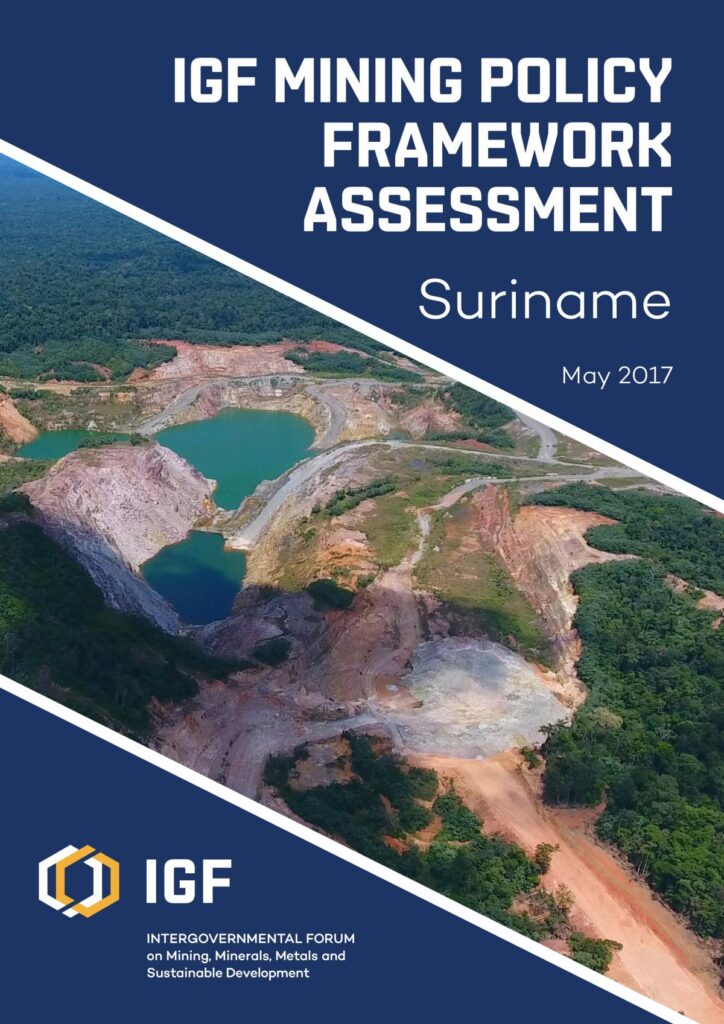
Mining’s Impact on Suriname’s Economy
Mining significantly contributes to Suriname’s economy in multiple ways. The income generated from mining activities provides revenue for the government, which can be used for infrastructure development, public services, and social programs.
Infrastructure development is closely linked to the mining sector, as improved transportation networks and energy supply are necessary to support mining operations. Furthermore, the mining industry plays a crucial role in attracting foreign investment and supporting Suriname’s economic growth.
Mining and Employment in Suriname
The mining sector in Suriname provides job opportunities for many Surinamese people. From skilled mining professionals to workers engaged in support services, the industry creates employment across various sectors.
Human resources development and training programs are essential to build a skilled workforce for the mining sector. Suriname recognizes the importance of providing training opportunities for its citizens to enhance their skills and contribute effectively to the mining industry.
Diversification of Suriname’s Economy
Reducing dependency on mining is a long-term goal for Suriname’s economic development. The government aims to promote other industries to diversify its economy and reduce vulnerability to fluctuations in commodity prices.
Tourism, agriculture, and renewable energy are among the sectors that offer potential for diversification. Suriname’s rich biodiversity, cultural heritage, and natural landscapes make it an ideal destination for ecotourism. Additionally, the fertile lands and favorable climate provide opportunities for agricultural development.
Conclusion
In conclusion, mining plays a crucial role in Suriname’s economy, contributing significantly to its GDP, providing employment, and generating foreign exchange earnings. Bauxite, gold, diamonds, and other minerals are valuable resources that contribute to Suriname’s mineral wealth.
However, the mining industry in Suriname faces challenges related to environmental impacts, informal mining, and mercury pollution. Sustainable mining practices and responsible corporate behavior are essential for mitigating these challenges and ensuring long-term benefits for Suriname’s economy and its people.
Efforts to minimize the negative impacts of mining, promote community engagement, and diversify the economy are crucial for Suriname’s sustainable development. With proper regulations, responsible mining practices, and support for other industries, Suriname can harness the potential of its mineral resources while preserving its natural environment and promoting the well-being of its people.
